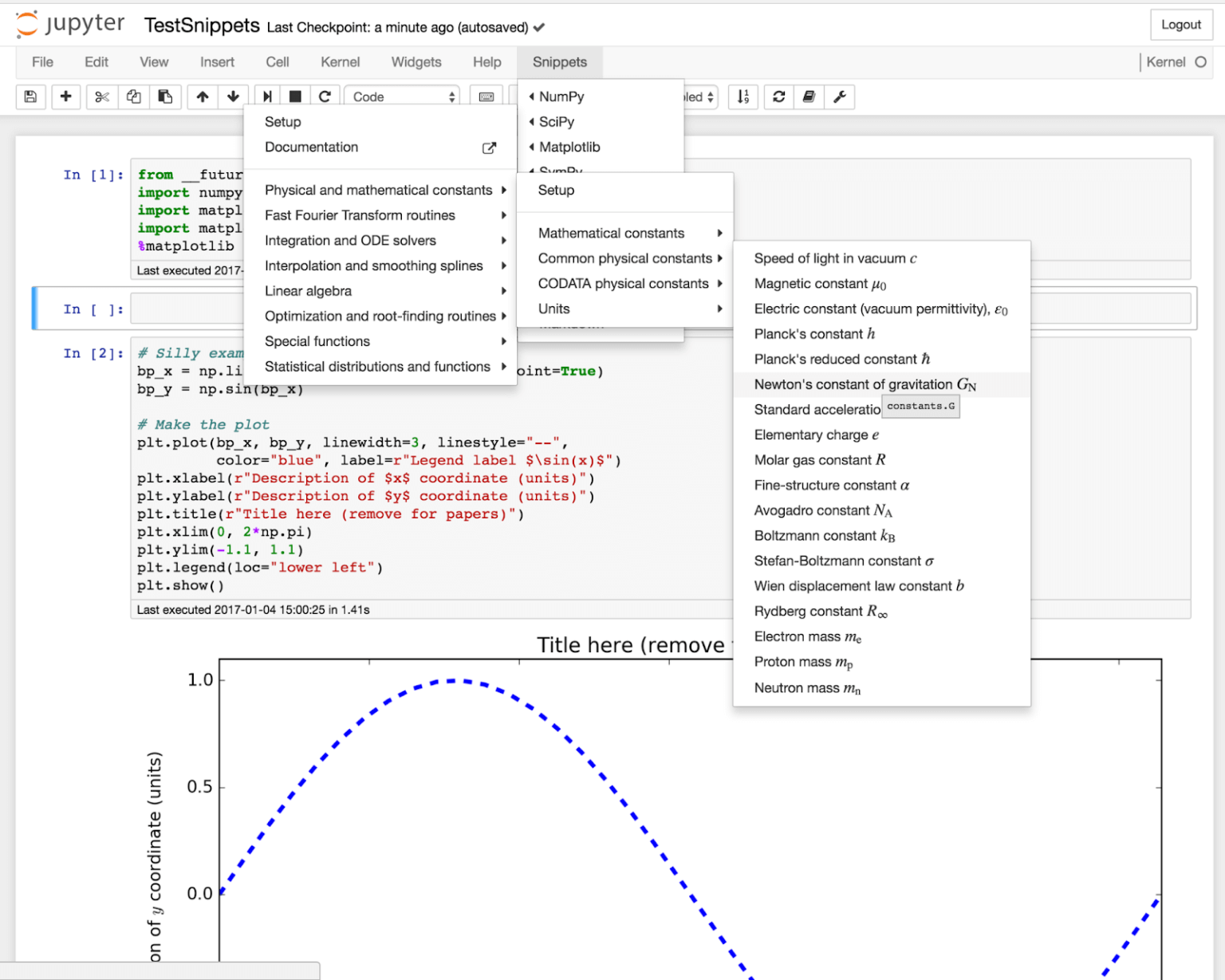

- Jupyter notebooks how to#
- Jupyter notebooks install#
- Jupyter notebooks upgrade#
- Jupyter notebooks code#
Jupyter notebooks install#
You do not need to install any special software. You can connect to the Jupyter Notebooks service using any modern web browser.
Jupyter notebooks how to#
There are many excellent tutorials and videos online that explain how to use Jupyter Notebooks. MSI Python tutorial materials provide a useful overview.

Notebooks currently supports both the JupyterLab and Classic Notebook interfaces, computation with the Python (version 2 and 3) and R languages, and can also interoperate with user-installed Jupyter environments. This interactive computing environment requires only a web browser, and enables data analysis and visualization on our HPC resources in a shareable, reproducible notebook format. Their copyright in the commit message of the change, when they commit theĬhange to one of the Jupyter repositories.Jupyter Notebooks are available to all users at. If individual contributors want to maintain a record of whatĬhanges/contributions they have specific copyright on, they should indicate Instead, it is the collective copyright of the entire Jupyterĭevelopment Team. Source code, in its entirety is not the copyright of any single person or But, it is important to note that theseĬontributions are typically only changes to the repositories. The core team that coordinates development on GitHub can be found here: This includes all of the Jupyter subprojects. The Jupyter Development Team is the set of all contributors to the Jupyter project.
Jupyter notebooks code#
This repository is a Jupyter project and follows the JupyterĬommunity Guides and Code of Conduct. If you are interested in contributing to the project, see CONTRIBUTING.md. See CONTRIBUTING.md for how to set up a local development installation. You need some configuration before starting Jupyter notebook remotely. Jupyter notebook Running in a remote installation The documentation for advanced usage of Jupyter notebook can be foundįor a local installation, make sure you have You can find the installation documentation for the Language-agnostic Jupyter notebook in this repo and with the help of theĬommunity develop language specific kernels which are found in their own AsĬomputing spans across many languages, Project Jupyter will continue to develop the Release containing both language-agnostic code, such as the IPython notebook,Īnd language specific code, such as the IPython kernel for Python.

In 2015, Jupyter notebook was released as a part of Jupyter notebook is a language-agnostic HTML notebook application for Jupyter notebook, the language-agnostic evolution of IPython notebook That way your new feature will also be compatible with the new Notebook v7. If you have an open pull request with a new feature or if you were planning to open one, we encourage switching over to the Jupyter Server and JupyterLab architecture, and distribute it as a server extension and / or JupyterLab prebuilt extension. New features and continuous improvement is now focused on Notebook v7 (see section above). Maintainance and security-related issues are now being addressed in the 6.4.x branch.Ī 6.5.x branch will be soon created and will depend on nbclassic for the HTML/JavaScript/CSS assets. To learn more about Notebook v7: Classic Notebook v6 This represents a significant change to the jupyter/notebook code base. The next major version of Notebook will be based on: There is also a plan to continue maintaining Notebook v6 with bug and security fixes only, to ease the transition to Notebook v7: jupyter/notebook-team-compass#5 (comment) Notebook v7 There is new stream of work which was submitted and then accepted as a Jupyter Enhancement Proposal (JEP) as part of the next version (v7): The Jupyter Notebook project is currently undertaking a transition to a more modern code base built from the ground-up using JupyterLab components and extensions.
Jupyter notebooks upgrade#
All Notebook v5 users are strongly advised to upgrade to Classic Notebook v6 as soon as possible. After Notebook v7.0 is released, we will no longer maintain Notebook v5. We maintain the two most recently released major versions of Jupyter Notebook, Notebook v5 and Classic Notebook v6. The Jupyter notebook is a web-based notebook environment for interactive


 0 kommentar(er)
0 kommentar(er)
